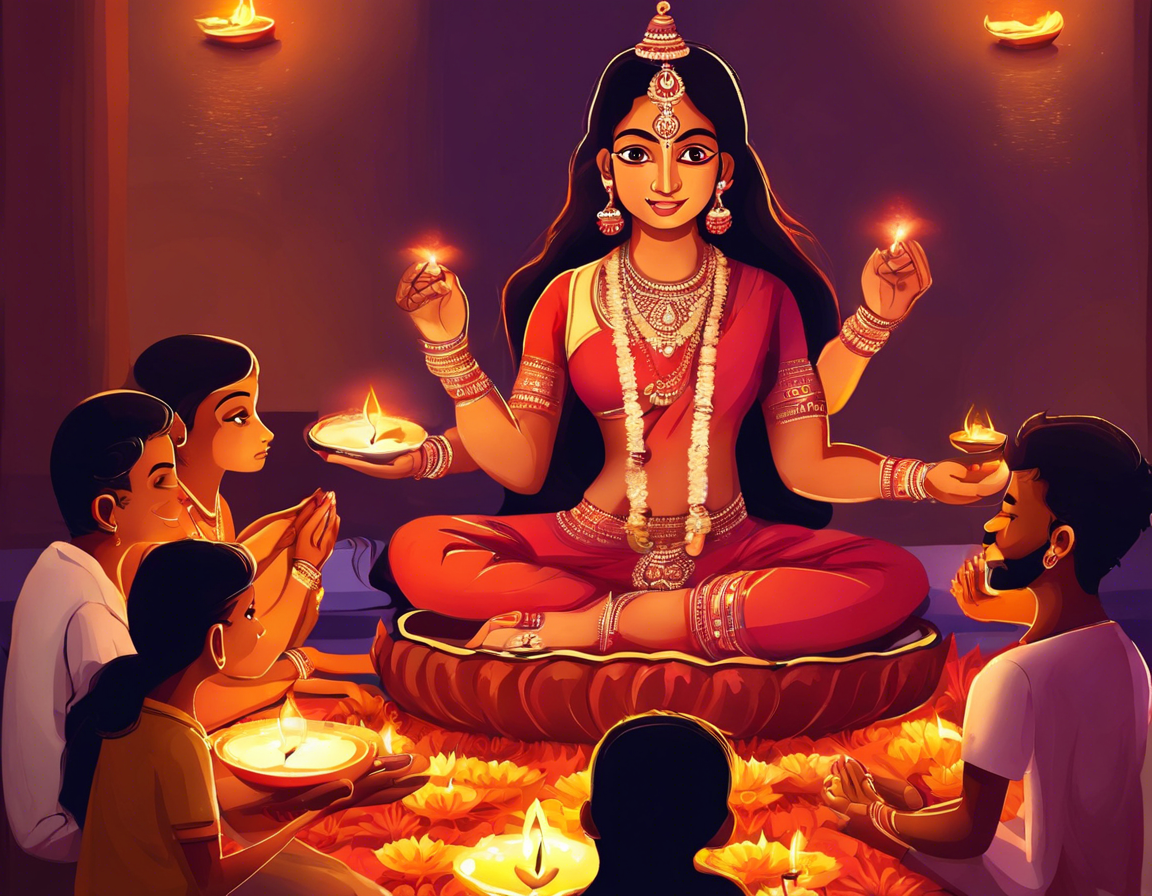Diwali Puja Time 2023: Schedule and Ceremonies


Diwali, also known as the Festival of Lights, is a significant Hindu festival celebrated with much fervor and enthusiasm across India and in various parts of the world. It symbolizes the victory of light over darkness, good over evil, and knowledge over ignorance. One of the important customs during Diwali is the performance of Diwali puja, a special ritual that is conducted to seek the blessings of the divine.
Importance of Diwali Puja
Diwali puja holds immense significance as it is believed to usher in prosperity, happiness, and good fortune into one’s life. The prayers offered during this auspicious time are believed to invoke blessings from the deity being worshipped and remove obstacles from the path of the devotees. The Diwali puja is a time for introspection, spiritual renewal, and strengthening bonds with family and community.
Diwali Puja Preparation
Before conducting the Diwali puja, it is essential to make adequate preparations. This includes cleaning and decorating the house with diyas (earthen lamps) and rangoli, purchasing puja samagri (items required for the puja), and setting up the puja altar or mandir.
Diwali Puja Schedule
The Diwali puja is performed during a specific time known as the muhurat, which is considered highly auspicious. The puja is usually conducted during the evening and is performed following a set sequence of rituals. The following is a general schedule for the Diwali puja:
Diwali Puja Ceremonies
- Ganesh Laxmi Puja: The Diwali puja typically begins with the worship of Lord Ganesha, the remover of obstacles, followed by prayers to Goddess Lakshmi, the goddess of wealth and prosperity.
- Lighting of Diyas: Lighting oil lamps or diyas is an integral part of the Diwali celebrations as it symbolizes the triumph of light over darkness.
- Offering Prayers and Mantras: Various prayers, mantras, and bhajans are recited during the puja to invoke the blessings of the deities and seek their protection.
- Distribution of Prasad: After the puja is completed, devotees partake in the prasad (offerings made to the deities) and distribute it among family members and friends.
- Firecrackers and Festive Celebrations: To conclude the Diwali festivities, people burst firecrackers, exchange gifts, and share meals with loved ones.
Diwali Puja FAQs
-
What is the significance of Diwali puja?
Diwali puja is a ritual that symbolizes the victory of light over darkness and the triumph of good over evil. It is believed to bring prosperity, happiness, and good fortune to the worshipper. -
When is the best time to perform Diwali puja?
The best time to perform Diwali puja is during the evening, following the muhurat (auspicious time) recommended by the priest or based on the Panchang (Hindu calendar). -
What are the essential items required for Diwali puja?
Essential items for Diwali puja include clay lamps, wicks, oil, incense sticks, camphor, flowers, fruits, sweets, coconut, betel leaves, and other puja samagri. -
Can Diwali puja be performed at home?
Yes, Diwali puja can be performed at home by following the proper rituals, mantras, and guidelines. It is a time for family members to come together and seek the blessings of the deities. -
What is the significance of lighting diyas during Diwali?
Lighting diyas during Diwali symbolizes the dispelling of darkness and the ushering in of light, wisdom, and prosperity into one’s life and home. -
Who are the main deities worshipped during Diwali puja?
The main deities worshipped during Diwali puja are Lord Ganesha, the remover of obstacles, and Goddess Lakshmi, the goddess of wealth and prosperity. -
How long does a typical Diwali puja ceremony last?
The duration of a Diwali puja ceremony can vary depending on the individual or family conducting the ritual. On average, it may last anywhere from 1 to 2 hours. -
Can children participate in Diwali puja?
Children can definitely participate in Diwali puja under the guidance of adults. It is a great way to teach them about the significance of the festival and involve them in the traditions of worship. -
What is the importance of distributing prasad after the puja?
Distributing prasad after the puja is considered auspicious as it is believed to carry the blessings of the deities. It is shared among family members and friends as a symbol of goodwill and abundance. -
Are there any specific dietary restrictions during Diwali puja?
While there are no specific dietary restrictions during Diwali puja, it is customary to offer vegetarian food as prasad. Many families also prepare special sweets and snacks to share with guests and loved ones.
In conclusion, the Diwali puja is a sacred and joyous occasion that brings families together in prayer and celebration. By following the traditional rituals and customs associated with Diwali, devotees can experience spiritual upliftment, prosperity, and the blessings of the divine. Let the radiance of the diyas illuminate your home and heart this Diwali!
- 76
- 0

0 Comments